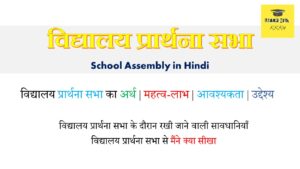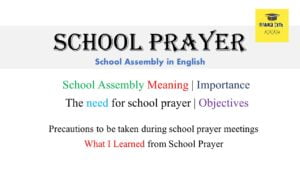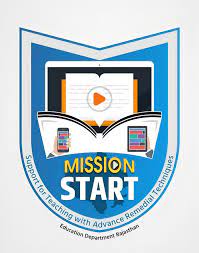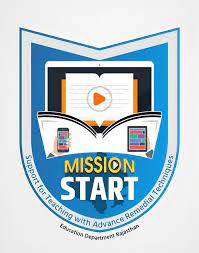National Education Policy 2020 (NEP 2020)
The National Education Policy 2020 (NEP 2020) marks a watershed moment in the history of Indian education, aiming to revitalize and transform the entire educational landscape of the country. Envisioned as a roadmap for the future, NEP 2020 is designed to address the evolving needs and challenges of the 21st century while fostering a culture of inclusive, equitable, and quality education for all.

National Education Policy 2020 (NEP 2020) in English
Introduction/Meaning OF NEP 2020
The National Education Policy 2020 (NEP 2020) is a landmark document introduced by the Government of India to overhaul the country’s education system comprehensively. It replaces the previous policy, which was formulated in 1986 and modified in 1992. NEP 2020 aims to address the emerging needs and challenges of the 21st century by providing a robust framework for the transformation of education across all levels, from early childhood to higher education.
Characteristics OF NEP 2020
- Holistic Development: NEP 2020 emphasizes the holistic development of learners, focusing not only on academic excellence but also on their physical, emotional, and ethical development.
- Multidisciplinary Approach: It encourages a multidisciplinary approach to education, allowing students to choose subjects across various domains and promoting a well-rounded learning experience.
- Flexible Curriculum: The policy advocates for a flexible curriculum that enables students to choose from a wide range of subjects based on their interests and aptitudes, fostering creativity and innovation.
- Integration of Technology: NEP 2020 recognizes the transformative potential of technology in education and promotes its integration at all levels to enhance teaching and learning processes.
- Assessment Reforms: The policy proposes significant reforms in assessment methods, moving away from rote memorization towards competency-based evaluation, formative assessments, and a reduction in the emphasis on board examinations.
- Vocational Education: NEP 2020 emphasizes the importance of vocational education and skill development, aiming to equip students with practical skills and knowledge relevant to the needs of the industry.
- Teacher Training and Professional Development: It focuses on enhancing the quality of teacher training programs and continuous professional development to ensure that educators are well-equipped to deliver effective instruction.
- Promotion of Regional Languages: The policy promotes the use of mother tongue or local languages as the medium of instruction at least until the fifth grade, recognizing the importance of preserving linguistic diversity and ensuring better comprehension among students.
- Equity and Inclusion: NEP 2020 seeks to address issues of equity and inclusion in education by providing equal opportunities for all students, including those from disadvantaged backgrounds, and by implementing measures to bridge the gender gap in education.
Need and Importance of NEP 2020
Need of new educqation policy 2020 : NEP 2020 is designed to address several pressing needs and challenges in the Indian education system, including:
- Ensuring universal access to quality education for all children, irrespective of their socio-economic background or geographical location.
- Aligning education with the rapidly changing socio-economic and technological landscape to equip students with the skills and competencies required for the 21st-century workforce.
- Promoting a culture of innovation, research, and critical thinking to foster creativity and problem-solving abilities among students.
- Reducing the burden of academic pressure on students and promoting a more holistic and child-centric approach to learning.
- Enhancing the quality and relevance of education to make it more responsive to the needs of society and the economy.
Advantages/Disadvantages OF NEP 2020
Advantages/Disadvantages OF NEP 2020 : Advantages of NEP 2020 include its potential to:
- Transform the education system into a more inclusive, flexible, and relevant framework that caters to the diverse needs of students.
- Foster creativity, critical thinking, and problem-solving skills among learners, preparing them for the challenges of the future.
- Bridge the gap between theoretical knowledge and practical skills by emphasizing vocational education and experiential learning.
- Promote equity and inclusion by providing equal opportunities for all students and addressing disparities in access to quality education.
However, challenges in implementing NEP 2020 may include:
- Resistance to change from various stakeholders, including educational institutions, policymakers, and society at large.
- Resource constraints and the need for significant investments in infrastructure, teacher training, and technology integration.
- Ensuring equitable access to quality education across diverse socio-economic backgrounds and geographical regions.
- Monitoring and evaluation mechanisms to track the effectiveness of policy implementation and make necessary adjustments as required.
National Education Policy 2020
Key Objectives:
NEP 2020 sets forth a comprehensive set of objectives aimed at transforming the education system to meet the demands of the 21st century. These objectives include:
- Providing universal access to quality early childhood care and education.
- Ensuring foundational literacy and numeracy for all students by Grade 3.
- Reimagining the curriculum and pedagogy to foster critical thinking, creativity, and scientific temper.
- Promoting multilingualism and the preservation of India’s rich linguistic heritage.
- Revamping the assessment system to focus on competency-based learning and reducing the emphasis on high-stakes examinations.
- Integrating technology into education at all levels to enhance teaching and learning outcomes.
- Emphasizing vocational education and skill development to prepare students for the demands of the modern workforce.
- Ensuring inclusive and equitable education for all, with a special focus on marginalized and disadvantaged groups.
- Strengthening the governance and management of educational institutions to improve efficiency and accountability.
Holistic Development:
NEP 2020 places a strong emphasis on holistic development, recognizing that education is not merely about acquiring knowledge but also about nurturing the physical, emotional, social, and ethical dimensions of learners. The policy advocates for a shift from the traditional ‘one-size-fits-all’ approach to education to a more learner-centric model that caters to the diverse needs and interests of individual students.
Flexible Curriculum:
One of the key highlights of NEP 2020 is the introduction of a flexible and multidisciplinary curriculum that allows students to choose subjects based on their interests, aptitudes, and career aspirations. The policy encourages the integration of arts, humanities, sciences, and vocational subjects into the mainstream curriculum, thereby providing students with a well-rounded education that prepares them for life beyond school.
Technology Integration:
NEP 2020 recognizes the transformative potential of technology in education and advocates for its widespread integration across all levels of the education system. The policy envisions the use of digital tools, online resources, and interactive learning platforms to enhance teaching and learning outcomes, improve access to quality education, and bridge the digital divide between urban and rural areas.
Assessment Reforms:
In line with its vision of promoting holistic development and reducing academic stress, NEP 2020 proposes significant reforms in the assessment system. The policy advocates for a shift from rote memorization and high-stakes examinations to a more continuous and comprehensive evaluation process that focuses on assessing students’ understanding, creativity, and problem-solving abilities.
Vocational Education and Skill Development:
Recognizing the importance of equipping students with practical skills and competencies relevant to the needs of the modern workforce, NEP 2020 places a strong emphasis on vocational education and skill development. The policy aims to integrate vocational courses into the mainstream curriculum and provide hands-on training opportunities to students from an early age, thereby enabling them to pursue diverse career pathways and contribute to the economy.
Promotion of Multilingualism:
NEP 2020 emphasizes the importance of promoting multilingualism and preserving India’s linguistic diversity by encouraging the use of mother tongue or local languages as the medium of instruction at least until Grade 5. The policy recognizes that learning in one’s native language enhances comprehension, cognitive development, and overall academic achievement, particularly among disadvantaged communities.
Equity and Inclusion:
Ensuring inclusive and equitable access to quality education for all learners, irrespective of their socio-economic background, gender, caste, religion, or disability, is a fundamental principle of NEP 2020. The policy aims to address disparities in educational attainment and participation by implementing targeted interventions, providing scholarships and incentives, and creating a supportive learning environment that caters to the diverse needs of students.
Challenges and Opportunities:
While NEP 2020 holds immense promise for transforming the education system and unlocking the potential of millions of learners across the country, it also faces several challenges in terms of implementation, resource mobilization, stakeholder engagement, and monitoring and evaluation. However, with political will, concerted efforts from all stakeholders, and a commitment to the principles of equity, quality, and inclusivity, NEP 2020 has the potential to usher in a new era of educational excellence and empowerment in India.
know this also
इसी प्रकार आपको B.Ed. से संबंधित सारी अपडेट एवं महत्वपूर्ण जानकारी देखने के लिए जिसमे B.Ed. Program से संबंधित होने वाली सारी शैक्षणिक व सह शैक्षणिक गतिविधियों की सम्पूर्ण जानकारी के साथ साथ उनकी पीडीएफ़ व अन्य संबंधित मेटेरियल उपलब्ध है – ये सब देखने के लिए B.Ed. Page पर विज़िट करे – CLICK HERE
lesson plan telegram group join for more – click here






